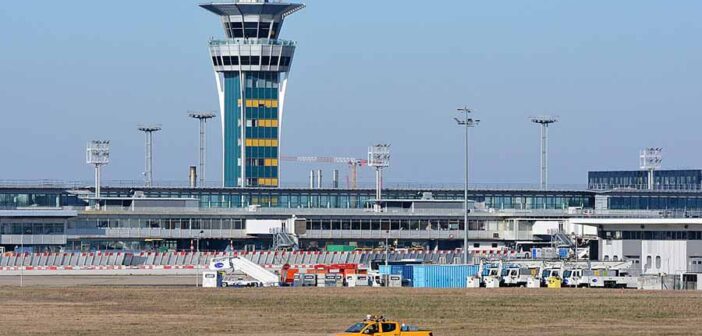Paris–Orly Airport, located 13 kilometres south of central Paris, serves as a welcoming hub for travellers seeking a convenient entry to the French capital or connections across Europe and beyond. Handling over 33 million passengers annually, this compact airport offers a manageable and efficient experience, particularly for those flying domestic or short-haul international routes. With its modern terminals and accessible transport links, Orly is a practical choice for exploring Paris or nearby destinations like Versailles.
Reaching the airport from Paris is straightforward, with several transport options catering to different budgets. The Orlyval light rail connects to the RER B line at Antony station, delivering passengers to central Paris in about 30–35 minutes for €12.10. The Orlybus provides a direct route to Denfert-Rochereau in 30–40 minutes for €9.50, while Tramway T7 links to the Paris Metro for €1.90, taking around 45 minutes.
Taxis and rideshare services like Uber offer a 20–40-minute journey, costing €30–€50 depending on traffic. Drivers benefit from good road connections via the A6 motorway, with parking options like P0 and P4–P7, some offering free shuttles to terminals. A new Grand Paris Express station, set to open by 2027, will further reduce travel times with Metro lines 14 and 18.
The airport’s layout, restructured into four zones—Orly 1, 2, 3, and 4—ensures clarity for passengers. Orly 1 and 2, formerly the West Terminal, handle domestic and Schengen flights with boarding gates A, B, and C. Orly 3 serves as a connector building with D gates, linking the other zones. Orly 4, once the South Terminal, manages international and long-haul flights, featuring gates E and F. The terminals are connected by walkways and a free shuttle bus running every 5–7 minutes from 4:00 AM to 11:30 PM, with walking times between terminals averaging 10–15 minutes. Clear signage and interactive maps help travellers locate gates, though peak hours can lead to crowded check-in areas. Arriving 2.5 hours early for domestic flights and 3.5 hours for international ones is recommended to navigate security and passport control, which can take up to 45 minutes during busy periods.
Dining and retail options cater to a range of preferences. Travellers can enjoy French cuisine at restaurants like Paul or quick bites at cafés and food courts in Orly 1 and 4. Duty-free shops, including Extime Duty-Free Paris, offer fragrances, cosmetics, and local delicacies like macarons, while boutiques like Victoria’s Secret and Guerlain provide luxury goods. A newsstand and convenience stores stock travel essentials. Although the retail area is smaller than at larger airports, it meets most passenger needs, with some eateries open from 3:30 AM to 10:30 PM.
Facilities enhance the travel experience with practical amenities. Free Wi-Fi is available via the “WIFI-AIRPORT” network, and ChargeBox columns in Terminals 1 and 4 offer secure phone charging. Lounges like the Icare Lounge in Terminal 4 and Premium Traveller Lounge in Terminal 1 provide snacks, drinks, and workspaces for €35–€47 or through memberships like Priority Pass. Families benefit from baby-changing rooms and children’s play areas, while passengers with reduced mobility can access wheelchair assistance, adapted restrooms, and priority lanes. A medical centre and pharmacy operate daily, and ATMs and currency exchange are available across terminals. Baggage storage is limited, with services like Baggage du Monde in Terminal 3, though travellers may need to use nearby train stations for long-term storage.
On-time performance is generally reliable, with real-time flight updates accessible via the airport’s website, apps like Flightradar24, or information screens. Orly serves major carriers like Air France, Transavia, and easyJet, alongside long-haul operators like Corsair and French Bee, connecting to destinations in Europe, North Africa, and the Caribbean. Delays can occur during peak periods, particularly in summer, due to high passenger volumes or air traffic control issues.
Security and passport control queues, especially in Orly 4, can slow progress, and strict carry-on policies from low-cost carriers may cause boarding delays. Weather disruptions are rare but possible in winter, and occasional staff shortages have been reported to affect service efficiency.
Connections at Orly are efficient for passengers on single-ticket itineraries, with minimum connection times of 50 minutes for domestic flights and 60 minutes for international ones. Baggage is typically transferred automatically, and yellow signs guide travellers to connecting gates. The shuttle bus and Orlyval ensure quick terminal transfers, though separate-ticket passengers should allow extra time for baggage reclaim and re-check-in. Orly’s focus on point-to-point travel means fewer hub connections than larger airports, but its compact size aids swift transitions.Potential delays to watch for include long security queues, particularly in Orly 1 and 4, and occasional cancellations due to technical issues or airline scheduling. Travellers have noted inconsistent staff responsiveness during disruptions, so using fast-track lanes, available for eligible passengers, can save time. By arriving early, checking flight status online, and pre-booking transport or parking, passengers can enjoy a smooth and pleasant journey through Paris–Orly Airport.




